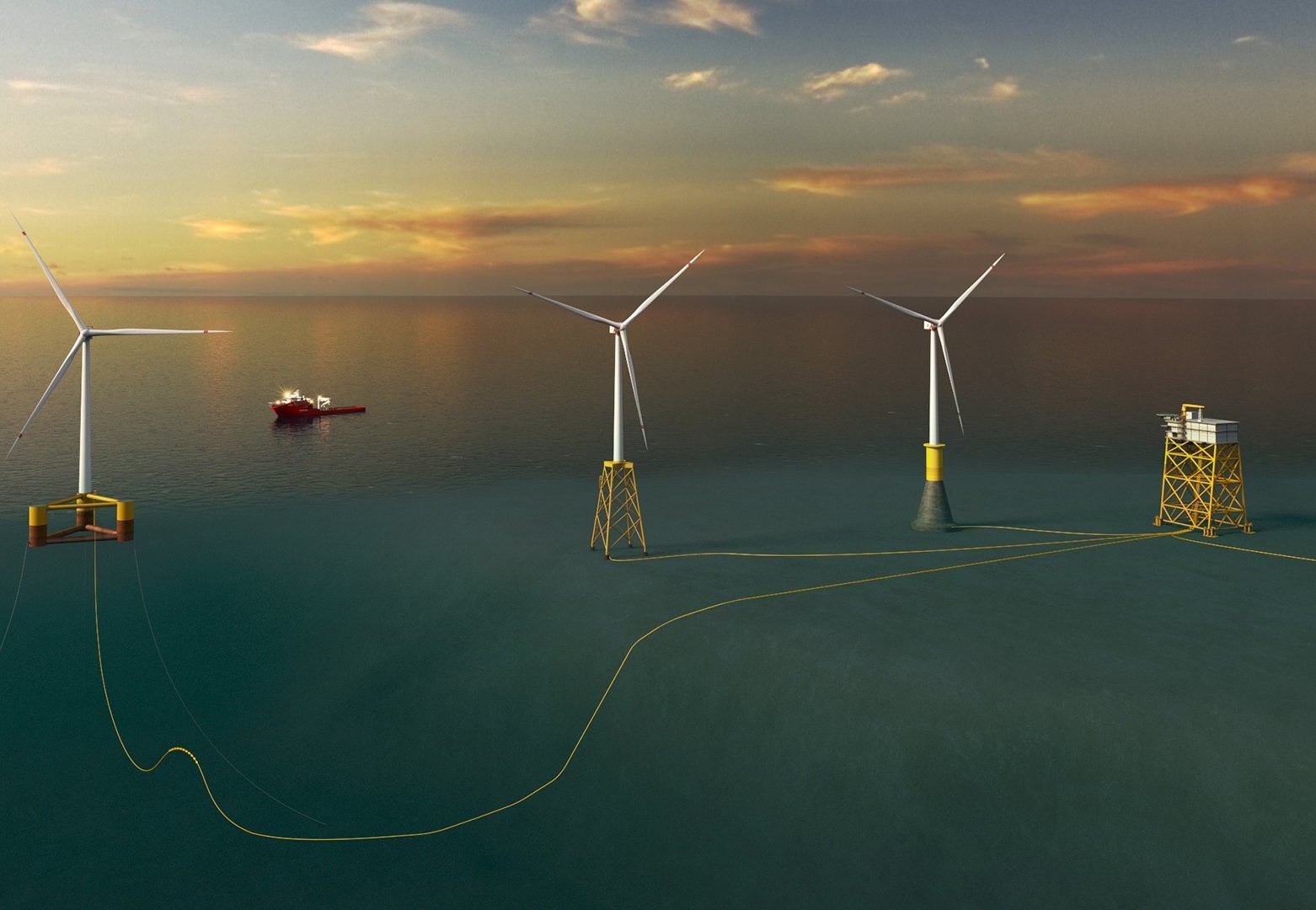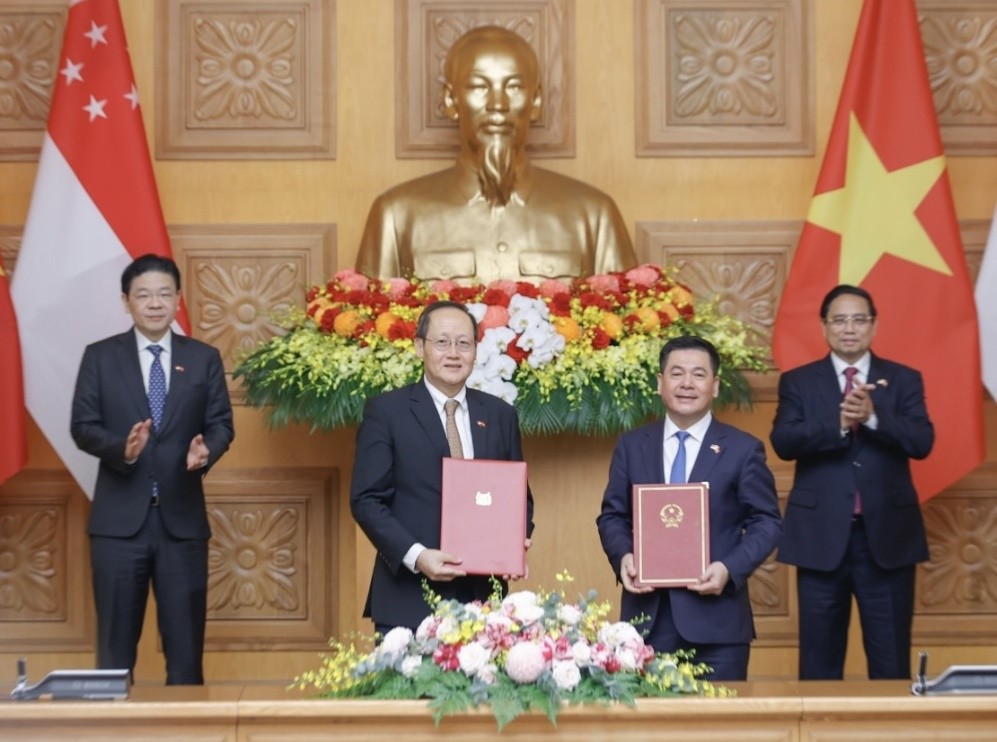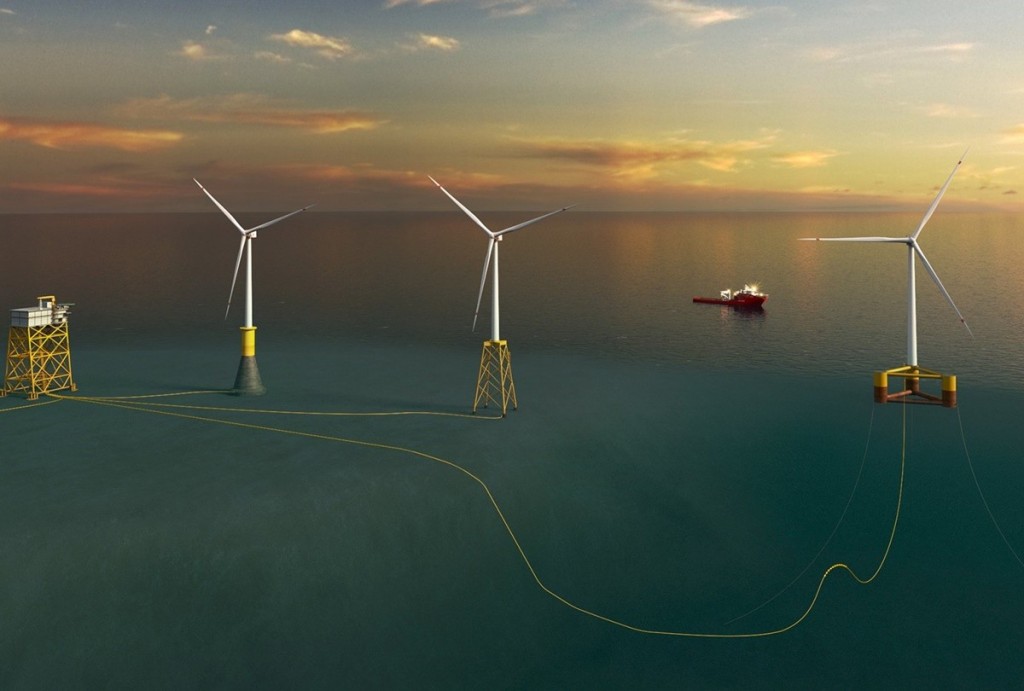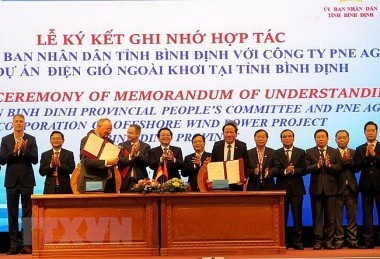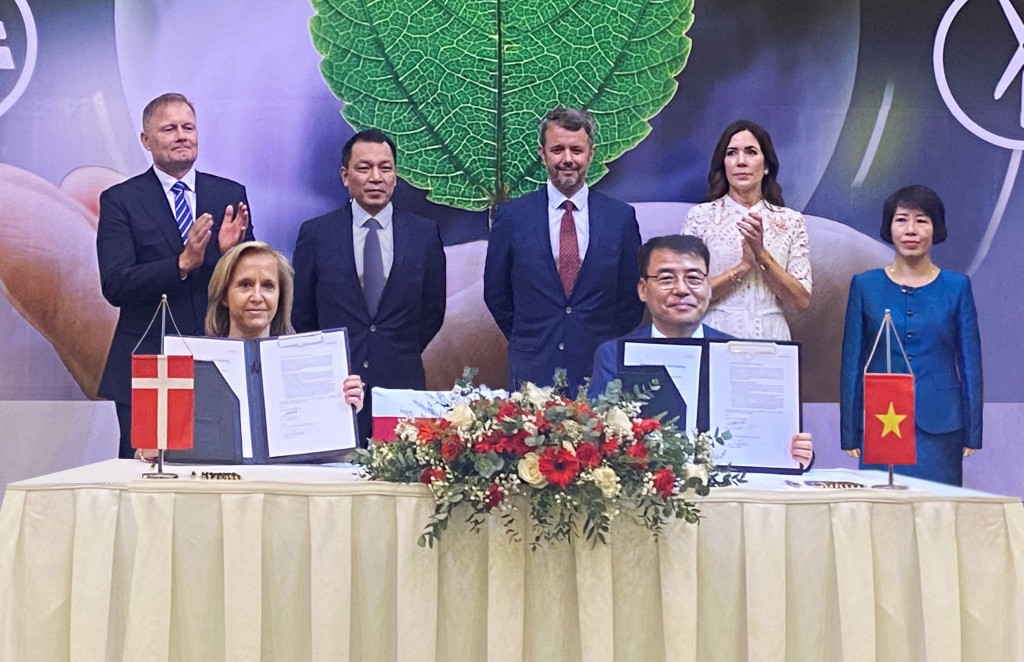Proposing pilot options for offshore wind power investment in Vietnam
12:00 | 23/07/2024
A report from MOIT said: According to recent research by the World Bank (WB), wind energy in Vietnam has the greatest potential among the four countries in the region, with more than 39% of the total estimated area, and with a calculated average annual wind speed greater than 6 m/s (at an altitude of 65m), equivalent to a capacity of 512 GW.
In the context of energy transition being an inevitable and irreversible trend, Vietnam has committed to the international community to reduce carbon dioxide emissions to zero (Net-zero) by 2050 while major domestic hydropower sources have been fully exploited, it is necessary to promote the development of renewable energy, especially offshore wind power projects..
The Power Development Planning (PDP) VIII sets the targets of offshore wind power capacity serving domestic electricity demand to reach 6,000 MW by 2030, with a vision to reach from 70,000 MW to 91,500 MW by 2050.
For Vietnam, offshore wind power is a new field, related to the security and sovereignty of islands, and there are still many difficulties and obstacles related to the functions and tasks of many ministries and agencies. On the other hand, there is currently a lack of mechanisms, policies and legal regulations for implementing the goals stated in PDP VIII and many challenges.
Vietnam has no offshore wind power projects, so it has no engineering and operation experience and may not be able to fully anticipate conflicts between industries and fields in common-use marine space. Vietnam also does not have a complete and accurate database on surveying wind speed and wind potential in each region, locality, as well as the entire country and the current state of terrain and seabed depth.
Therefore, MOIT believes that deploying offshore wind power projects requires careful and careful research. The first phase focuses on assigning state-owned economic corporations to do pilot projects, creating a premise for perfecting legal regulations. Foreign and private investors only do so after completing a comprehensive assessment of the pilot project and the legal document system.
On the other hand, because offshore wind power projects are related to the scope of management, functions and tasks of many ministries and agencies, the research, development and implementation of schemes and pilot projects require the participation and close coordination of many ministries and agencies, especially the Ministry of National Defense, the Ministry of Public Security, the Ministry of Justice and the Ministry of Natural Resources and Environment.
In the report submitted to the Government, MOIT also mentioned several international methods.
With this option method, MOIT assessed that choosing an international investor to pilot an offshore wind power project will be unfeasible because there are still problems with the legal framework.
- Plan for assignment to private economic groups.
With this plan, MOIT said: according to the direction of Deputy Prime Minister Tran Hong Ha: "Research on assigning state-owned economic groups (PVN, EVN), or the Ministry of National Defense, projects such as:
- Investor selection plan and Implement pilot projects".
From the above practice, MOIT proposed three options for implementing the pilot project as follows:
Option 1: Assign Vietnam Oil and Gas Group (PVN).
Regarding this plan, MOIT believed that: with the advantage of offshore wind power projects, there are several items and works similar to offshore oil and gas projects with the same database (geotechnical, geophysical) availability of the oil and gas industry, facilities, and abundant, quality human resources.
However, assigning PVN to invest in offshore wind power also needs to be evaluated by the Party's policy on PVN's industry, profession, and business orientation. This content needs to be further clarified after receiving comments from ministries, agencies, the State Capital Management Committee at Enterprises and PVN.
Option 2: Assign Electricity of Vietnam (EVN).
Regarding this plan, according to MOIT, EVN has a lot of experience in investing, managing and operating power plants and power transmission systems. Therefore, EVN will have certain advantages when taking advantage of its existing experience and capacity in deploying offshore wind power projects. However, this is a new field so it has different requirements than traditional power projects.
In addition, assigning EVN to pilot investment also has certain advantages because it does not have to negotiate electricity prices (EVN is also the unit trading electricity). This content continues to be clarified after receiving opinions from ministries, agencies, the Committee for Management of State Capital at Enterprises and EVN.
Option 3: Assign a unit to the Ministry of National Defense. Regarding this plan, MOIT said: It needs to be evaluated for compatibility with the Party's policies, as well as assessing feasibility after considering the capacity of specific units under the Ministry of National Defense and will continue to be clarified after MOIT receives comments from the Ministry of National Defense and other ministries and agencies.
In the report submitted to the Government on the implementation of the pilot research to develop offshore wind power projects, MOIT also mentioned the plan to assign it to domestic private individuals to implement. Regarding this plan, according to MOIT, although in recent times, the private sector has participated a lot in investment in the electricity sector. However, privately invested projects are often traditional power projects, and wind and solar power projects are not large in scale. With current legal problems and offshore wind power being a new field, related to national defense and security, the private sector should not be assigned pilot investment until all the issues have been fully evaluated, national defense, security, prices and legal problems...

